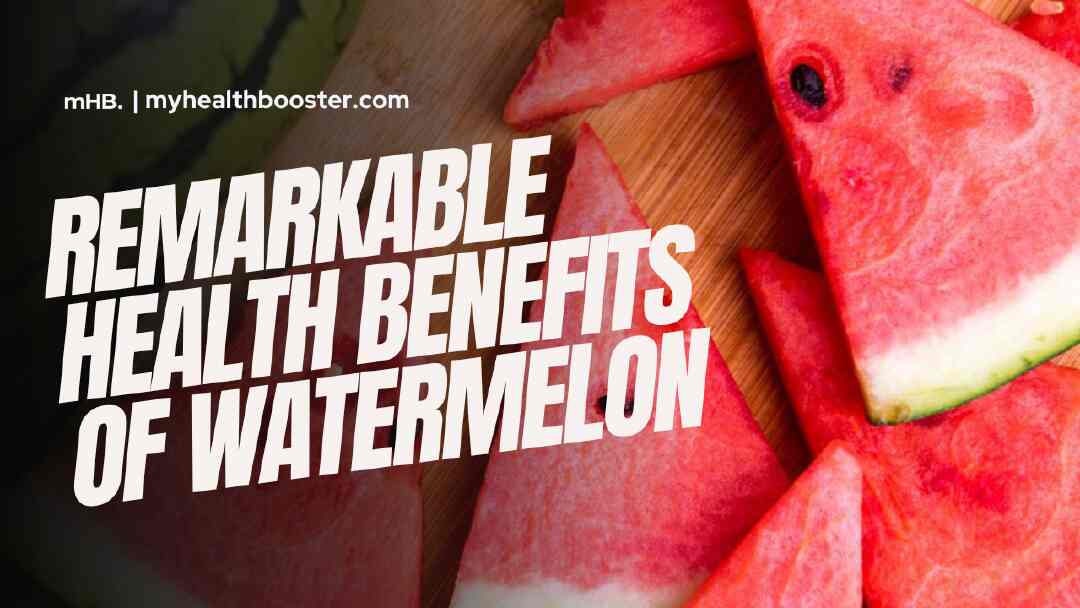Summer’s signature refreshment, the juicy and crisp watermelon, brings an unparalleled burst of flavor. This iconic fruit graces backyard barbecues and local farmers’ markets with its presence, marking the season of sunshine. Delightfully, indulging in this summer classic not only tantalizes your taste buds but also supports your well-being. Recent research reveals that watermelon enthusiasts tend to embrace a healthier diet, rich in fiber, magnesium, potassium, vitamin A, and antioxidants. Moreover, their diets are lower in added sugars and saturated fats.
While watermelon is technically available year-round, its true magic shines during the summer months. Why? Because this is when locally grown melons in the U.S. make their appearance. With shorter travel times and unparalleled freshness, summer watermelons are more budget-friendly and tastier, explains Blatner.
Moreover, eating watermelon is an enjoyable experience. It evokes a sense of carefree nostalgia, reminiscent of summer picnics and cherished moments spent outdoors.
Here’s a comprehensive overview of the incredible health benefits offered by watermelon, as endorsed by nutritionists:
Watermelon Nutrition Facts
Before diving into the benefits, let’s look at what a 1-cup serving (152g) of watermelon contains, according to the U.S. Department of Agriculture:
- Calories: 45.6
- Fat: 0.2g
- Cholesterol: 0mg
- Sodium: 1.52mg
- Carbohydrate: 11.5g
- Fiber: 0.6g
- Vitamin C: 12.3mg
- Potassium: 170mg
- Calcium: 10mg
- Vitamin A: 865 IU
- Lycopene: 6,890 micrograms
What are the health benefits of watermelon?
Watermelon contributes key antioxidant nutrients that support disease prevention and overall wellness. Let’s delve into these benefits:
1. Nutrient Powerhouse
Watermelon delivers a host of essential nutrients, including approximately 15% of your daily vitamin C requirement. It’s also rich in potassium, vitamins A, and B6. These nutrients are vital for immune strength, skin health, and maintaining nerve function.
2. Watermelon the Disease Fighter
Lycopene, a natural antioxidant found in watermelon, is known to reduce the risk of cancer and heart disease. It shields your cells from damage, lowers blood pressure, and reduces inflammation, a known contributor to various diseases.
3. Hydration Hero
With over 90% water content, watermelon helps keep you hydrated, particularly crucial during hot and humid summers. After a workout or prolonged sweating, a sprinkle of salt on watermelon can replenish lost electrolytes and carbohydrates.
4. Watermelon the Digestive Aid
Watermelon’s high water content and fiber facilitate smooth digestion. Fiber adds bulk to your stool, while water aids in waste movement through your digestive system.
5. Eye Health
Packed with vitamins A and C, lycopene, and lutein+zeaxanthin, watermelon supports overall eye health and guards against age-related vision issues.
6. Heart Health
Research suggests that lycopene in watermelon may reduce the risk of heart disease and stroke. It can lower blood pressure and enhance arterial function.
7. Immunity Booster
Watermelon provides essential vitamins and minerals, particularly vitamins A and C and the amino acid L-citrulline, which contribute to a robust immune system.
8. Inflammation Reduction
The combination of antioxidants, including lycopene and vitamin C, found in watermelon, can lower inflammation and oxidative damage over time, thereby reducing the risk of chronic diseases.
9. Watermelon Saves Skin
The water and vitamins A, B6, and C in watermelon promote soft, supple skin. Vitamin C boosts collagen production, enhancing skin elasticity, while vitamin A aids in skin cell repair. Lycopene also helps protect your skin from the sun’s harmful effects.
10. Muscle Relief
Research suggests that watermelon juice, rich in L-citrulline, can reduce muscle soreness and lower recovery heart rates, making it a potential post-workout recovery drink.
11. Gym Performance
L-citrulline in watermelon may enhance exercise performance by increasing blood flow and oxygen delivery to muscles, reducing exertion during and after workouts.
12. Watermelon for Weight Management
Opting for watermelon over sugary snacks can increase feelings of fullness. Limited research indicates that daily watermelon consumption can lead to weight loss, reduced blood pressure, and improved waist circumference.
13. Eco-Friendly and Nutritious
Watermelon is a zero-waste food. You can consume the flesh, rind, and seeds. Rinds, lower in sugar and high in fiber, slow sugar absorption in the gut. Seeds, rich in plant protein and magnesium, offer heart-protective benefits.
Is it okay to eat watermelon every day?
Watermelon’s exceptional health benefits make it a wonderful daily addition to your diet, especially since many Americans don’t meet their daily fruit intake recommendations. However, diversity in your fruit choices ensures a broad spectrum of nutrients. While watermelon is a wholesome choice, moderation is advised to prevent digestive discomfort, particularly if you have sensitivities or diabetes. Watermelon is considered a high FODMAP fruit, meaning it contains short-chain sugars that may cause bloating or discomfort in excessive amounts.
For those with diabetes or watching carbohydrate intake, be mindful of sugar levels. Overindulging in fruit, including watermelon, can impact blood sugar levels.
Summary
watermelon is a refreshing and nutritious fruit that’s perfect for summer. Enjoy it in moderation, and savor the many health benefits it offers, making your summer even sweeter.
